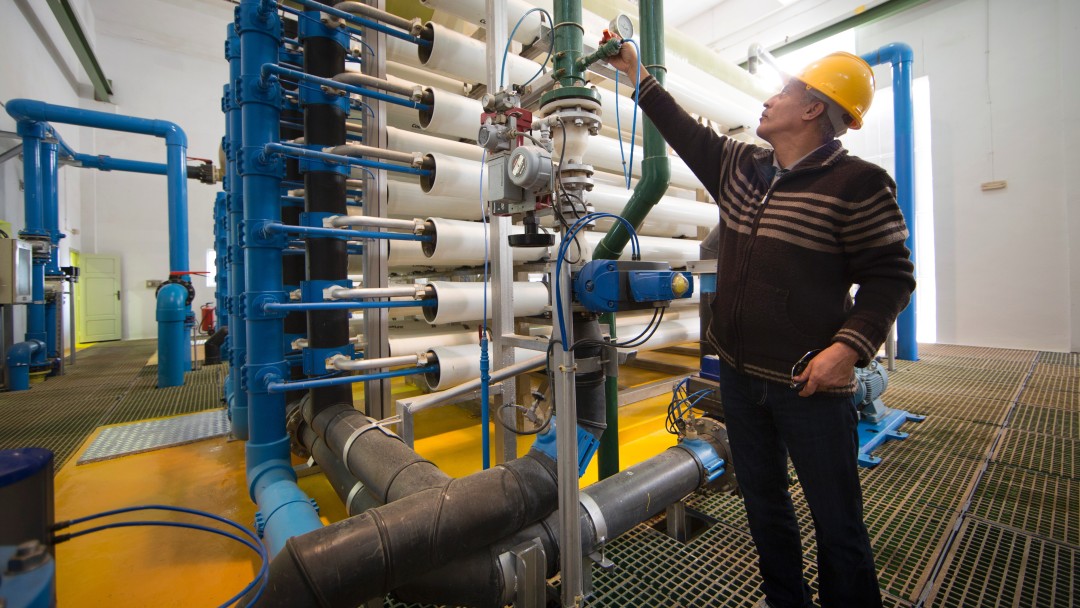News from 2017-03-22 / KfW Development Bank, Sustainability
Drinking water from the ocean
KfW provides funds for the construction of desalination plants in Tunisia on behalf of the German Federal Government
Turning salt water into drinking water: The coast of Tunisia is rich in the precious resource of water, provided that the technical conditions for desalination exist. This is precisely the starting point for the roughly EUR 500 million provided by KfW on behalf of the German Federal Ministry for Economic Cooperation and Development (BMZ) to finance desalination plants in the North African country. This improves access to clean drinking water, the importance of which is being underscored at the UN’s World Water Day on 22 March.
The usable groundwater and surface water resources are no longer sufficient to provide Tunisia with an adequate supply of drinking water. In many places in the middle and south of the country, there is not enough clean water to meet demand continuously throughout the year. One example is the holiday island of Djerba which gets its water from wells on the mainland via an extensive system of long-distance pipes. Without this water, it would be impossible to ensure the island’s water supply. Since water is scarce on the mainland, this solution cannot be maintained over the long term.
In view of this situation in central and southern Tunisia, the government is planning to build desalination plants with a total support of more than half a billion euros from KfW on behalf of the BMZ. They include 16 brackish water desalination plants and two seawater desalination plants, one of them on the island of Djerba. Once completed, this system can alone supply as many as 600,000 people with drinking water.
In addition to the desalination plants, funds are also being provided to drill deep wells, build reservoirs and lay pipe systems. Moreover, because fresh water extraction in desalination plants is so cost and energy-intensive, the possibility is being explored of meeting part of the electricity requirements of the desalination plants by integrating renewable energy (wind power systems).
"Without desalination plants, it will no longer be possible to meet the drinking water needs in Tunisia in the medium term," says engineer Günter Walter, who is responsible for water in North Africa at KfW. This justifies the relatively high costs.
Desalination of seawater or brackish water is a method used all over the world. KfW is funding further desalination plants in Morocco, Mexico, Namibia and India on behalf of the BMZ.


Share page
To share the content of this page with your network, click on one of the icons below.
Note on data protection: When you share content, your personal data is transferred to the selected network.
Data protection
Alternatively, you can also copy the short link: https://www.kfw-entwicklungsbank.de/s/enzBWrMC.BiyA
Copy link Link copied